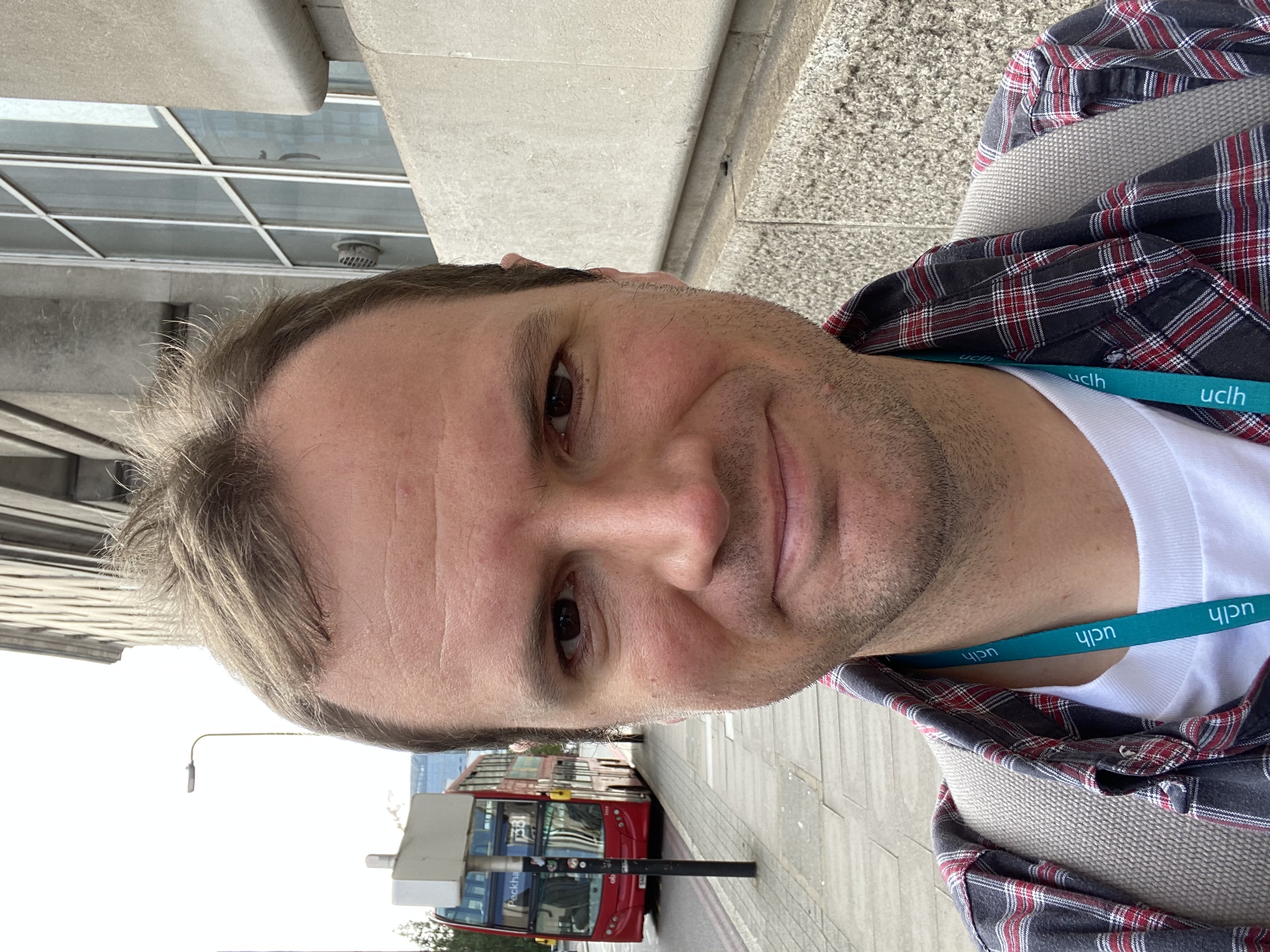Y-ECCO Interview Corner: Karen Edelblum
Robin Dart, Y-ECCO Member
 Robin Dart Robin Dart© Robin Dart |
Y-ECCO Interview Corner gives us the opportunity to gain insights into members of the IBD Community, what they do and how they got to where they are. For this edition, I caught up with Dr. Karen Edelblum , a scientist who has a unique and important perspective.
Karen Edelblum combines cell biology and mucosal immunology, with some stunning time-lapse microscopy. She aims to understand how we might harness immune–epithelial interactions in the treatment of Inflammatory Bowel Disease. Having trained at Vanderbilt University and the University of Chicago, she is now assistant professor at Rutgers New Jersey Medical School. We met (over an internet connection) to get her insights into IBD and the science that will move it on.
Tell us what motivated you to study science and what got you into IBD in particular?
I was diagnosed with Crohn's Disease as a teenager. At that stage in life, you start to think about your identity and try to figure out “Who am I going to be?” and “What am I going do?” Suddenly, I was also faced with a debilitating illness! I think it is somewhat unrealistic at that age to truly process what it means to have a chronic disease. While I realised that having IBD is something that I would have to deal with and take medication for, I was also stubborn and didn’t want to take meds because it would mean that I was different from everybody else. While I could say that becoming an IBD researcher was for selfish reasons, I am not trying to fix myself; I’m trying to make sure that other kids don't have to deal with the same pain and trauma that I experienced.
My perception was always that if I could do something to fix it [IBD], I should try to do so. I don’t handle pain and suffering well, so becoming a clinician was never an option for me. Instead, I am very happy to make my impact on the field by studying the underlying mechanisms of disease. When students with IBD (or a family member that is affected) ask for internships in the lab, I do my best to accommodate them. When you are ill, you don't feel particularly empowered about anything, so I try to teach them some science and empower them through knowledge.
 Karen Edelblum Karen Edelblum © Karen Edelblum |
You work on how gamma delta T cells interact with the epithelium in preclinical models and in humans. Tell us how you got here?
At first, I really wanted to be a geneticist – Dr. Judy Cho was (and still is) my IBD scientist role model. When I took a genetics class in college, I realised that my brain isn’t wired for those types of analyses. I like to solve puzzles; I want to piece together what signals are upstream or downstream of a given process and then figure out how those events are connected spatially and temporally.
Therefore, I pursued graduate studies focused on epithelial cell biology, and I explored the connections between cytokine signalling and epithelial cell survival in mouse models of IBD. While I was finishing my PhD, I saw that the IBD field had many scientists who were exceptional epithelial biologists or immunologists, but there seemed to be a lack of investigators who could successfully integrate the two fields. I took a postdoctoral fellowship at The University of Chicago because it was a great place to begin to address these questions and also learn cutting-edge microscopy.
As clinicians and scientists we increasingly talk about mechanisms of action. We have drugs which target different pathways, but do we really know how they work at a molecular or subcellular level? You have written about the lack of basic science in communications with patients (Nature Reviews Gastroenterology and Hepatology, 2021). How do you approach this?
That’s a tough question. Of course, we know the basic mechanism of action for all the IBD medications out there, but what we don’t always know is how inhibiting that specific pathway(s) differentially affects various cell types. As a physician, it is challenging to effectively communicate to a patient how medications work in a way that is easily accessible. What is the difference between anti-TNF and anti-IL-12/23? Mechanistically, why does one biologic work and another does not?
Even before I was active on Twitter, I received many random emails or calls from patients wanting to ask me, “Why do my doctors keep telling me to try a different medication, but the last thing didn't work? Why would this medication work any better?” I often feel like I should carry a tiny whiteboard with me to explain the inflammatory pathways and immune cell trafficking! I'm not a physician, and so I’m not qualified to tell patients what to do now or what to try next, but I can help answer many of the questions that start with “why” or “how”. As a patient, it’s terrifying to think, “What if none of this works?” As a scientist, it’s hard not to have a better answer than, “Here are the available options that we have right now, but I’m working on it.”
In terms of IBD therapy we often feel that we have come a long way in a short space of time, although there is still a large unmet need for people with ongoing disease despite treatment. How do you feel about this?
I think I may be in the second generation of patients who were started on infliximab. When I had surgery for severe Crohn’s Disease, I was given this new biologic and told that this was my best shot at remission without steroids. At the time, there were not many alternatives. I was fortunate. I know that there are people 15–20 years my senior who endured multiple resections; at least I had this one new option when I needed it the most.
Now there are several therapeutic options for IBD patients, newest among them S1P inhibitors. When people ask why we do not have more therapies available right now, I find it to be a challenging conversation. Our current therapies all functionally target the same cellular mechanisms – it is not ideal, but at least there ARE options. I am a huge advocate of identifying new therapies that do not rely on immunosuppression and I’m heartened to see many of my colleagues in the IBD Research Community jumping on this bandwagon.
Surgery has sometimes been presented as a last resort, although attitudes are changing to that. How do you feel about surgery from your experience in terms of IBD treatment?
I feel pretty good about it; it saved my life. As a patient, surgery always seems like the worst-case scenario because there is a degree of trauma involved, both mental and physical. I put off surgery far longer than I should have, until I called another IBD patient and said, “Can you remind me how this was the best thing that you ever did? Because right now this seems like the worst thing that I could ever do!” Their reassurance that a few crappy post-surgical weeks were worth a net-positive outcome helped me take that mental leap. Having resources for patients is incredibly valuable, whether support groups (in person or virtual), camps for kids with IBD or one-on-one peer mentoring programmes. Interacting with other people who have lived this shared experience helps immeasurably.
As far as you are concerned, what would a cure look like?
I wish I had a great answer, but it's such a hard question, isn't it?
Personalised medicine seems to be the key because everyone's disease is different or responds differently. Many of the large GWAS studies are trying to get to the root of this fundamental question. Perhaps once we know how to better leverage these individualised data, we will get to the point where we can slot a patient’s disease into one of X number of subtypes cross-referenced by efficacy of individual therapeutics to deliver an optimised treatment plan.
Can we come up with better ways to treat patients that don’t leave them susceptible to cancer? Yes, I think we can do that. Can we find therapies that would extend the longevity of treatment cycles to reduce a patient’s financial burden? That seems reasonable to me. Can we get patients off of immunosuppressive therapies and onto meds that maintain remission? I certainly hope so. However, it is difficult to envision that there will be one cure that will eliminate all IBD in everyone – so that it is gone forever, and you never have to worry about it again. I’m generally an optimistic person, but that particular outcome still feels relatively intangible.
Most of our treatments focus on reducing inflammation. Where do you see treatment paradigms moving?
I would love to see patients prescribed one set of drugs to put them into remission and then transitioned to another set of maintenance meds to keep them in remission. Let’s continue to inhibit T cell trafficking and reduce TNF levels to stop the vicious cycle of inflammation during a flare, but once a patient achieves remission, what mechanisms can we leverage to maintain the status quo and prevent a triggering event without suppressing the immune system? My research programme focuses on how to amplify the protective responses of immune sentinels, known as gamma delta T cells, within the epithelium. However, mobilising tissue-resident gamma delta T cells in the middle of a flare is not going to be useful when the epithelium is destroyed and your immune system is in panic mode. If we can devise a separate set of therapeutics that enhance the ability of tissue resident gamma delta T cells to maintain an intact barrier, engage errant microbes and dampen sparks of inflammation while a patient is in remission to prevent a wildfire, that seems like a better approach than immunosuppression.
And with that I would like to thank Dr. Edelblum for a really fascinating perspective on both the science of IBD and what it is to be on both sides of the table. I would highly recommend checking out some of the videos of gamma delta intraepithelial lymphocytes flossing their way through the epithelium at the lab website www.edelblumlab.com.